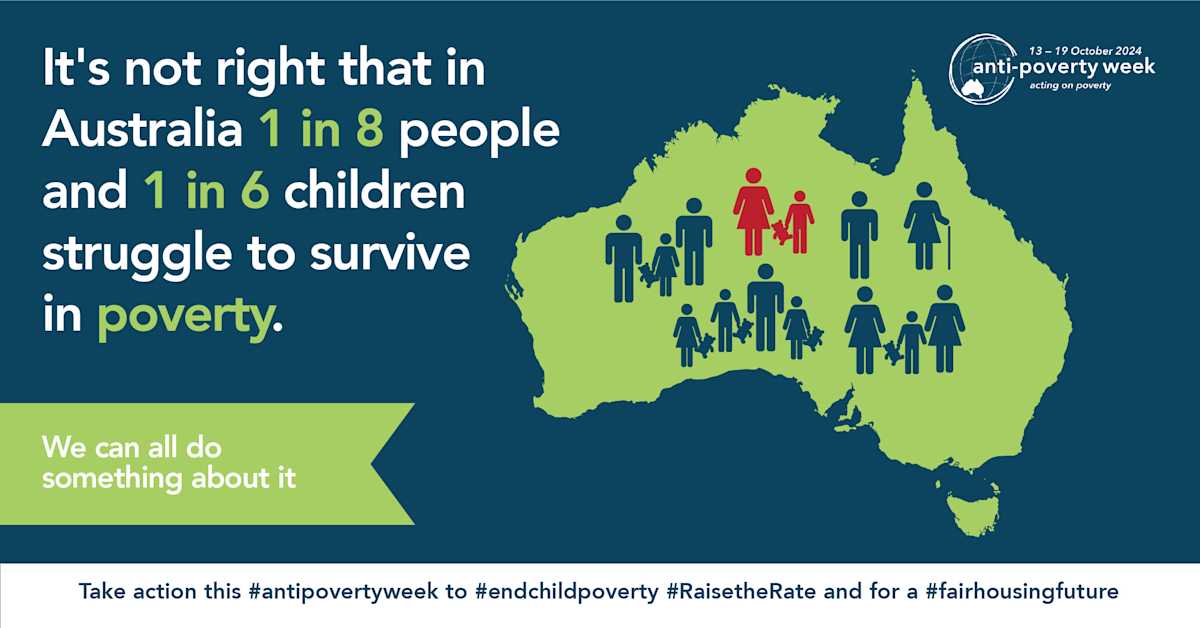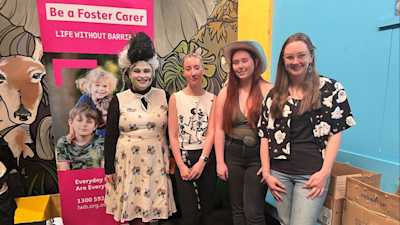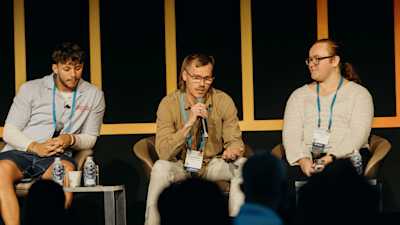"It is time as a nation to think about the big picture and make changes that will impact children now and for the future." - Claire Robbs.

Image: A teenage girl with long brown hair wearing a blue t-shirt is walking outdoors.
Claire Robbs, Life Without Barriers Chief Executive, reflects on how national unity can enable all children can live a life free from poverty. The below story is written in her own words.
When we think about kids living their childhoods, we probably all imagine the joy and wonderment children are meant to feel as they grow. We expect that kids get to cuddle teddy bears, have bedrooms filled with toys, have enough clothes to wear, have opportunities to join sports or other activities that interest them, and have nourishing food at the dinner table.
I realise the figure of 1 in 6 children live in poverty in Australia is probably not a well known figure across the Australian population. One of the reasons for this is we currently don't have an 'official' poverty line in Australia. What constitutes poverty is debated, but it is largely now described in terms of 'material things' people may not have access to. But we also need to consider the 'non-material' things.

Image: Graphic tile with a blue background and a green map of Australia with icons of people in blue and red. Text: It's not right that in Australia 1 in 8 people and 1 in 6 children struggle to survive in poverty. We can all do something about it.
So, what is the difference and what does it mean for Australian children and young people living in poverty?
Material poverty means children may not have the physical resources they absolutely need, such as sufficient food, clothing, access to healthcare, and stable and safe housing.
Non-material poverty is lack of access to opportunity such as consistent access to school, school activities, and community activities such as the chance to learn a new skill in sport, music, or other interests. Increasingly, poverty is also not having access to things like technology.
For Anti-Poverty Week, my well respected colleague Doug Taylor, CEO of The Smith Family, wrote about how digital devices and reliable internet are essential for young people - most importantly for their education.
Doug is right in saying, "Without these tools, their learning and social development can suffer, impacting their future careers and well-being — only deepening disadvantage." I encourage you to read his reflection.

Image: A teenage boy sits at a desk, using a laptop.
Life Without Barriers is a national provider of services for children and young people and we know first-hand some of the challenges children can face early on. Children in child protection are highly vulnerable to the impacts of poverty and the intergenerational issues and trauma that come from it.
Anti-Poverty Week has always been a strong week of collaboration and partnership to end poverty and this year we joined the End Child Poverty campaign. This means we are united in national action calling on all Governments, at all levels, to legislate an end to child poverty in Australia.
Our purpose over the next week, and into the future, is to help Australians understand child poverty and to take collective action to end it. Housing policies, state education policies, welfare policies - these all impact how children can be supported to live free from poverty.
It is time we really started as a nation to think about the big picture for our generations and make changes that will impact children now and for the future.
I believe all Australians are committed to all children being able to thrive in childhood. Ending child poverty requires systemic policies to be permanently set in law, so we can change the generational cycle of all poverty forever.
Finally, and most importantly of all, we must ask children how they experience poverty, which will inform governments and community on how best to respond, ensuring children are seen in their own right.
All forms of poverty deny children their human rights because they are completely reliant on adults to ensure those rights are upheld.
As we head into a Federal election next year, we can work together to bring this issue into the national frame and advocate for policies that benefit all children to live free from poverty.
You can take positive action and support the End Child Poverty campaign by signing the petition or visiting the official End Child Poverty website to learn more.


